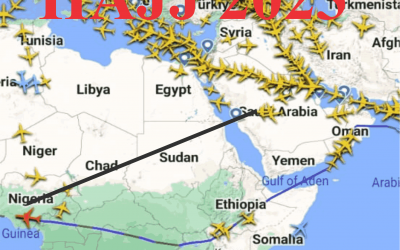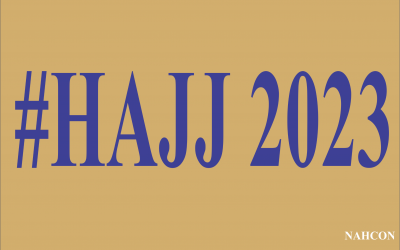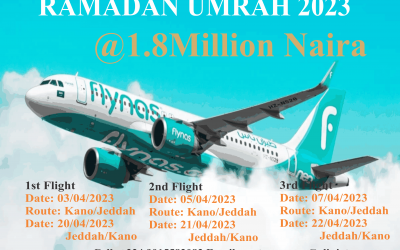linkedin.com/in/shadrachswantekambai
Fostering Growth, Innovation, and Sustainability in Airline Operations
The successful execution of Hajj operations in Nigeria relies heavily on efficient flight operations. When signing contract agreements with foreign airlines for this purpose, it is crucial to embrace cultural variation. By recognizing and accommodating cultural differences, Nigeria can optimize flight operations during the Hajj season, ensuring a seamless experience for pilgrims. For example, pilgrims from the northern part of Nigeria normally travel with almost nothing to Medina except their travel document but the reverse is true for pilgrims from the southwestern region of the country where every pilgrim carries his local food enough for the days he will spend in the Holy land.
Adaptation to Local Customs and Practices
Nigeria has unique customs and practices that are deeply rooted in its culture. By embracing cultural variation, foreign airlines can gain a better understanding of Nigerian customs and adapt their operations accordingly. This includes considerations such as local time schedules, halal meals, and other religious and cultural requirements, leading to a more comfortable and respectful experience for pilgrims. This necessitates the inclusion of terms in the agreements that will allow pilgrims to bring certain local goods for consumption, and this clause should contain the type of local food, amount, and packaging criteria. While this provision is unimportant in the north, it is critical in the south and has the potential to considerably affect pilgrims’ selection on which airline they will use during hajj.
Improved Coordination and Logistics
Cultural variation impacts the way people perceive and approach tasks. By embracing cultural diversity in contract agreements, Nigeria can foster better coordination and logistics with foreign airlines. Understanding the cultural practices, work patterns, and decision-making processes of these airlines allows for more effective planning and execution of flight operations, leading to enhanced efficiency and reduced delays.
This necessitates the inclusion of terms in the agreements that will allow pilgrims to bring certain local goods for consumption, and this clause should contain the type of local food, amount, and packaging criteria. While this provision is unimportant in the north, it is critical in the south and has the potential to considerably affect pilgrims’ selection on which airline they will use during hajj.
Enhanced Customer Satisfaction
When foreign airlines take cultural variation into account, it demonstrates their commitment to understanding and meeting the needs of Nigerian pilgrims. By optimizing flight operations through cultural embrace, the overall experience for pilgrims is enhanced, resulting in higher customer satisfaction levels. This, in turn, contributes to a positive reputation for both the airlines and Nigeria as a preferred destination for Hajj.
Effective Training and Communication
Different cultures have distinct communication styles and learning preferences. By embracing cultural variation, Nigeria can tailor training programs and communication strategies to meet the needs of foreign airline personnel. This ensures that all parties involved are well-equipped with the necessary knowledge and skills to handle flight operations smoothly, minimizing potential misunderstandings and errors by opening communication channels that will enable pilgrim officials easy access to resolve airlines to resolve issues.
Conclusion
Incorporating cultural variation in contract agreements with foreign airlines during Hajj operations in Nigeria is essential for a successful and harmonious pilgrimage experience. Recognizing and respecting the unique needs of Nigerian pilgrims, fostering intercultural relationships, and enriching service delivery. Also Embracing cultural variation in contract agreements with foreign airlines during Hajj operations in Nigeria is crucial for optimizing flight operations. By recognizing cultural differences and adapting strategies accordingly, Nigeria can achieve improved coordination, effective training, and better adaptation to local customs. This leads to enhanced efficiency, customer satisfaction, and a successful Hajj experience for pilgrims. By valuing cultural diversity, Nigeria can establish long-term partnerships with foreign airlines and solidify its position as a leader in organizing Hajj operations.
- Safeguarding Integrity in Airline Operations
- Why Restricting Flight Dispatch Training Enrollments in Nigeria is Imperative
- Ensuring Airlines’ Passenger Rights
- Overcoming Anxiety While in Pursuit of Your Goals
- Financial Constraints: Why Airlines Safety is at Risk
Follow the Author on LinkedIn for more at






0 Comments